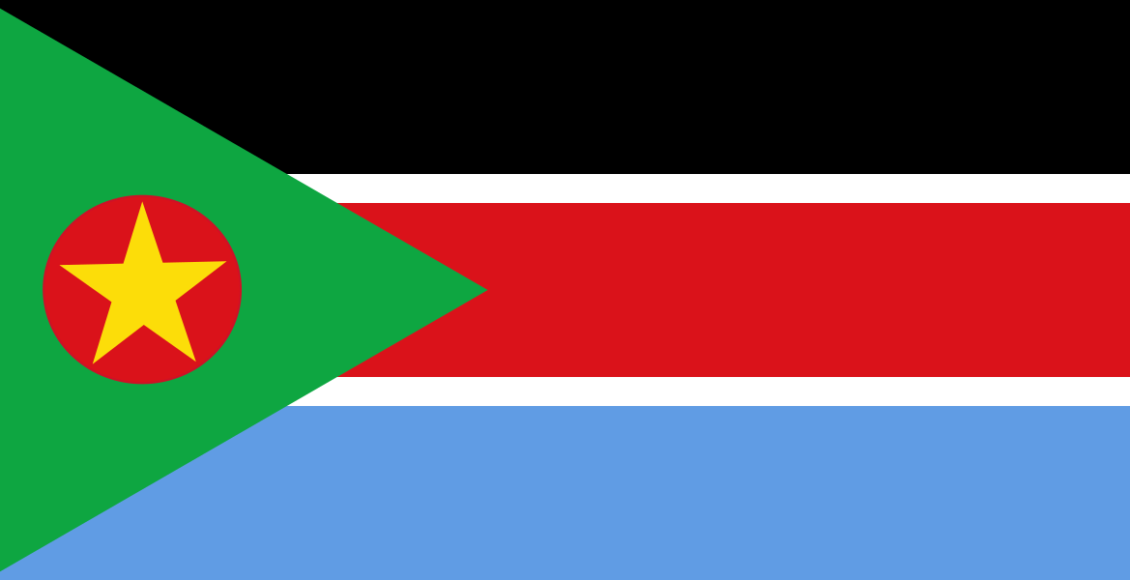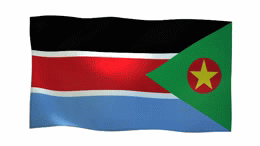
Urgent Appeal for Humanitarian Response to Hunger Crisis in the Nuba Mountains and New Funj Region
Press Release
16 August 2024
Urgent Appeal for Humanitarian Response to Hunger Crisis
in the Nuba Mountains and New Funj Region
The Civil Authority of New Sudan, which administers the Two Areas of the Nuba Mountains and the New Funj region on behalf of the Sudan People’s Liberation Movement-North (SPLM-N), has issued an appeal for urgent humanitarian assistance for four million people in the areas under its administration.
Covering 138,000 sq km of Savanah, the Nuba Mountains is in the south of Sudan, due east of Darfur and immediately north of the border of South Sudan (which became the world’s newest nation when it seceded from Sudan in 2011 following years of conflict). With heavy seasonal rainfall, it constitutes 15% of Sudan’s agricultural land and is currently home to some three million people, including 722,000 Internally Displaced Persons (IDPs). The 83,000 sq km New Funj area is in the Blue Nile region bordering both Ethiopia and South Sudan and has a population of 903,526, including 115,000 IDPs.
Since Sudan’s independence in 1956, both areas suffered from cultural, economic, political and developmental marginalisation from successive Khartoum regimes, leading to their participation in the prolonged revolutionary struggle of the Sudan People’s Liberation Movement/Army (SPLM/A). The Two Areas – along with the disputed enclave of Abyei – were supposedly granted special status in the 2005 Comprehensive Peace Agreement that paved the way for the independence of South Sudan in 2011, but the agreement was never fully implemented north of the new border, leading to the resumption of conflict.
Repeated bouts of armed conflict have severely impacted their already-fragile infrastructure, making survival increasingly difficult for the affected populations, but last year’s outbreak of full-scale war between the rival military factions that seized power in Khartoum has worsened the situation beyond imagination, resulting in the current hunger catastrophe in both regions.
The latest report from the UN estimates that half of Sudan’s population – some 25 million individuals – are currently experiencing severe food insecurity, including 14 million children, with 3 million under-5s suffering severe malnutrition; one of the world’s worst humanitarian crises.
The UN Office for the Coordination of Humanitarian Affairs (OCHA) has stressed the urgent need to address the severe food security crisis in the Nuba Mountains, resulting from the loss of its means of production and access to resources required to enhance agricultural output, as well as the presence of large numbers of IDPs fleeing conflict zones in Sudan. The limited amount of food that the host community has managed to produce is being shared with the newcomers and is thus being rapidly depleted.
Following the SPLM-N leadership’s recent agreement to allow unrestricted access for aid delivery into areas under its control, OCHA explored all options to facilitate aid delivery and decided to establish an office in South Sudan and another in the SPLM-N areas to facilitate humanitarian operations.
Sudan’s latest conflict has led to a 60% reduction in cultivable land nationwide and forced 80% of the agricultural workforce to flee. The situation regarding sorghum, the main staple food grains, is particularly dire, with a 72% loss of its expected production. As the conflict has widened, 13 of the country’s 25 states have virtually ceased agricultural production, leading to a drastic shortfall.
The Nuba Mountains and New Funj areas first experienced a significant hunger gap in 1984 due to severe drought and desertification which caused the deaths of thousands. It happened again in 1991 when the Sudan Armed Forces (SAFs) implemented a blockade of the two regions and began using food as a weapon of war to force the starving populations into the notorious peace camps. Over ten thousand people died and half a million migrated to government-controlled areas; they were subjected to brutal treatment, including forced Islamisation and Arabisation.
The latest humanitarian crisis has been caused by a combination of factors, including a disastrous harvest season, a locus infestation and the ongoing armed conflict between SAFs and the former Janjaweed that constitute the bulk of the Rapid Support Forces (RSFs), who have both enforced market closures, preventing access to essential resources for farming – such as seeds, fuel and spare parts. Agricultural output has been further hampered by a severe measles outbreak and by aerial bombardments of both regions. Villages have also been subjected to a scorched-earth policy, with homes and crops burnt, roads blocked and residents again displaced to peace camps.
As a result, the Two Areas face an even worse humanitarian situation than the rest of the country, with over 20% of families affected by severe food shortages and 30% of children suffering from malnutrition.
URGENT APPEAL
The New Sudan Civil Authority appeals to all national, regional and international organisations and institutions working in the aid sector for an urgent response to address this humanitarian catastrophe and save the lives of the citizens of the Two Areas. We also call on people to visit the SPLM-N-administered areas of New Sudan to witness the extent of the suffering.
Chapter Executive Committee
SPLM-N in the UK and the Republic of Ireland
2 | P a g e

